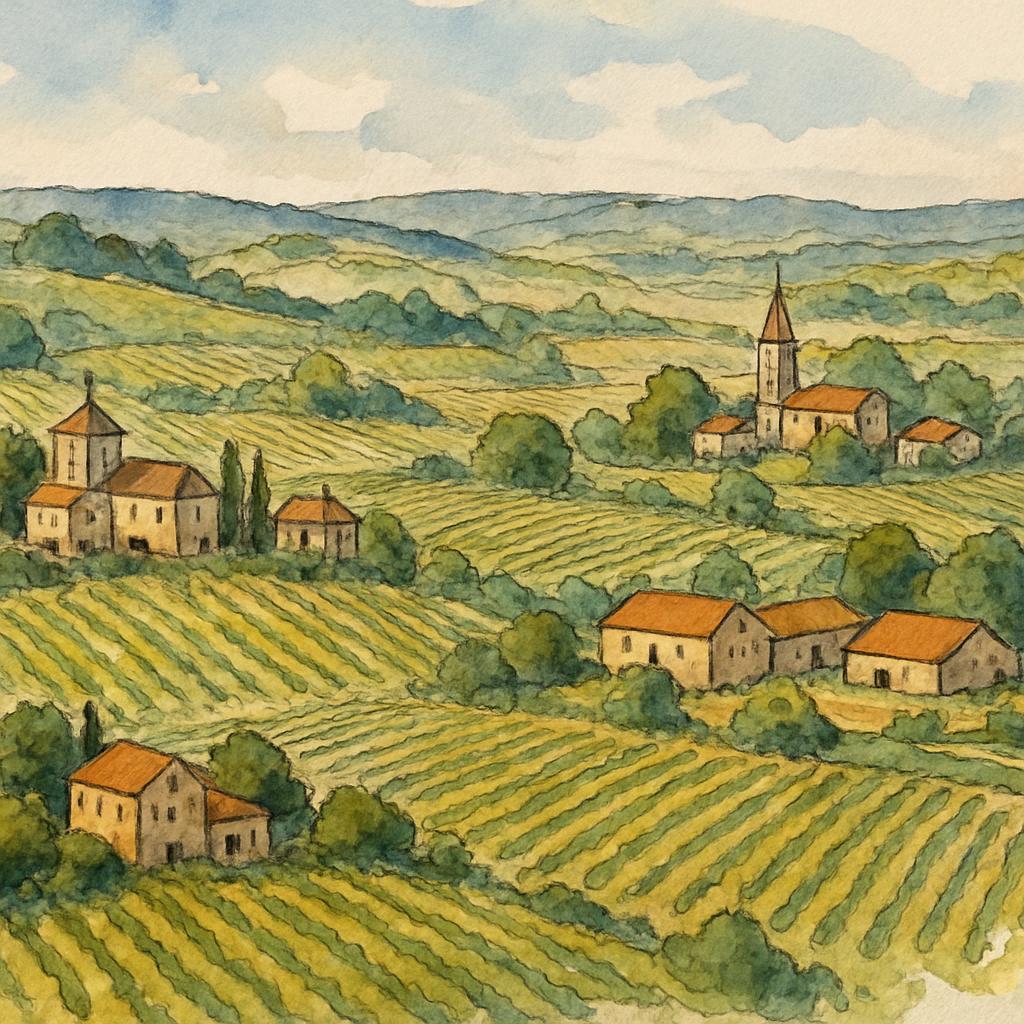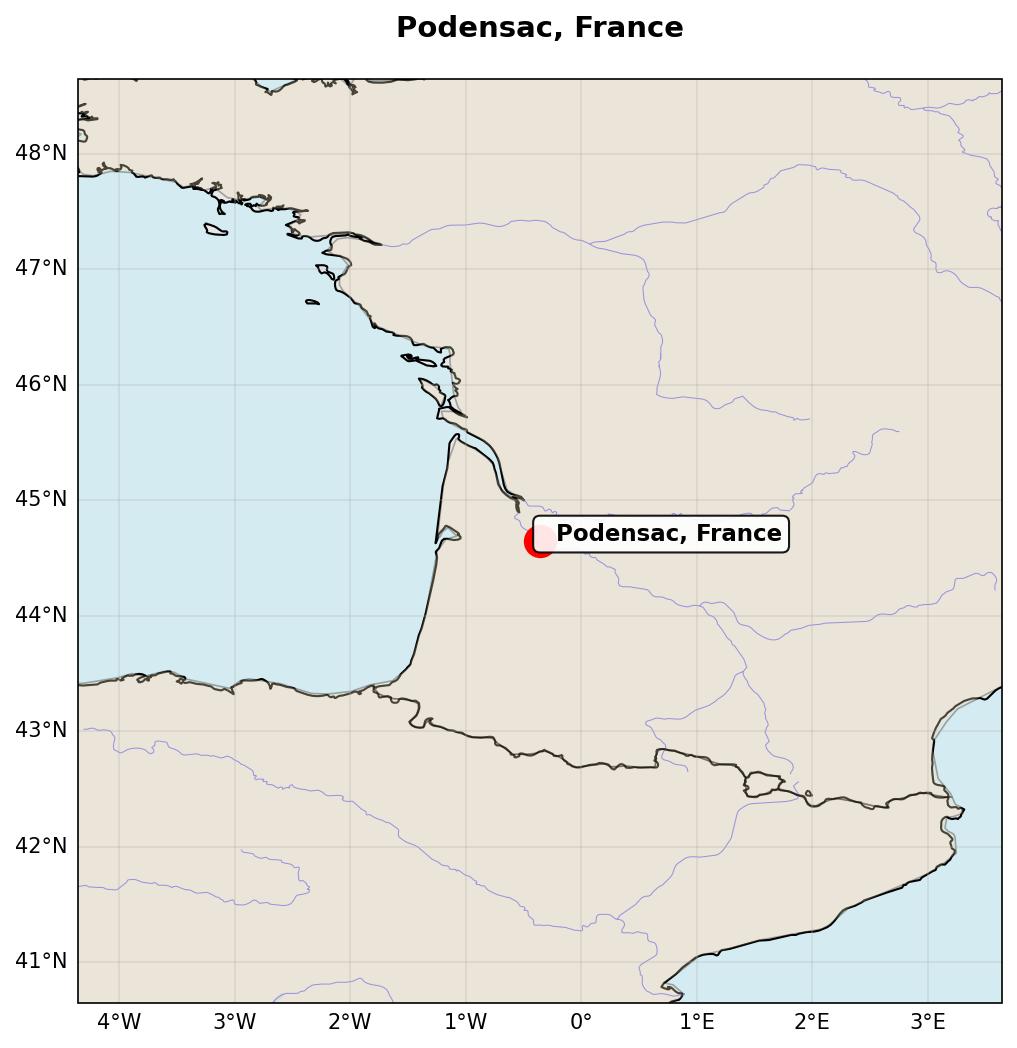Terroir of Podensac
Podensac boasts a unique terroir characterized by the gravelly sands and silty loams of the southern Graves, which rest on clay and limestone layers. The presence of "graves" or rounded river stones promotes excellent drainage and heat retention, vital for the ripening of grapes like Merlot, Cabernet Sauvignon, and Sauvignon Blanc. This diverse soil composition supports deep vine roots, resulting in balanced growth and concentrated flavors with a hint of minerality.
The climate is mild and maritime, influenced by the Atlantic Ocean and Garonne River. Warm summers with cool nights help maintain acidity, while mild winters and evenly distributed rainfall support healthy vine growth. Challenges such as spring frosts or summer hail occasionally occur, yet favorable years yield fully ripened grapes, even developing noble rot for sweet wines. This combination of soil and climate ensures Podensac wines are rich, fresh, and reflective of their Graves heritage.
Notable Wineries in Podensac
Podensac sits within the heart of Graves and is surrounded by family-run and historic estates producing classic dry whites and supple reds. Here are verified, visitable estates in and around Podensac:
- Château Chantegrive (Podensac): A benchmark Graves estate crafting polished reds and vibrant Sauvignon–Sémillon whites.
- Château de Cérons (Cérons): Historic property neighboring Podensac, producing Graves dry wines and the delicate sweet wines of AOC Cérons.
- Château Rahoul (Cérons): Respected Graves producer known for age-worthy reds and aromatic whites.
- Château de Portets (Portets): Visitor-friendly estate along the Garonne offering tours and a range of Graves wines.
Sustainable Winemaking in Podensac
In Podensac, winemakers are committed to sustainable practices, seeking certifications like High Environmental Value (HVE) and Terra Vitis. Many are transitioning areas of their vineyards to organic or biodynamic methods, embracing techniques that enhance soil health and reduce chemical use. Cover crops are planted to prevent erosion, while mechanical weeding replaces herbicides. Integrated pest management minimizes chemical reliance, and water is conserved through treatment and recycling processes.
Efforts to boost biodiversity include planting hedgerows and maintaining grassed pathways. Energy conservation is prioritized, with solar panels and lighter glass bottles becoming common. Grape waste is often composted, all part of a broader initiative to maintain healthy soils and meet consumer demand for eco-friendly wine. These practices ensure Podensac's wines continue to reflect the rich heritage and unique terroir of the Graves region while safeguarding the environment for future generations.
Wine Tourism in Podensac
Podensac is a delightful destination for wine tourism within the Graves region, offering memorable experiences centered around its rich winemaking heritage. At the heart of this journey is the Maison des Vins de Graves, where visitors can sample a variety of wines and learn about the unique terroir. The village serves as a gateway to the "Bordeaux Wine Route in Graves and Sauternes," a network of picturesque trails ideal for cycling or driving.
- Château Chavat Gardens: Stroll through beautiful gardens and enjoy scenic picnic spots.
- Harvest Events: Participate in seasonal open-house weekends with tours and tastings.
- Local Accommodations: Stay in cozy hotels or chambres d’hôtes offering local charm.
- Regional Cuisine: Savor local dishes paired with Bordeaux wines at charming eateries.


